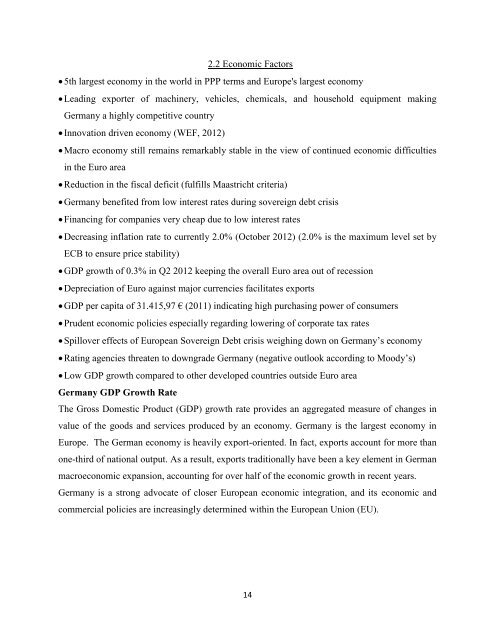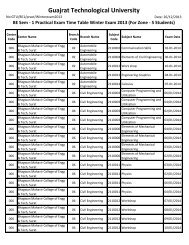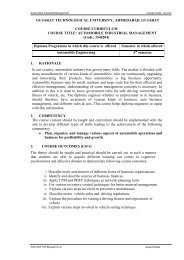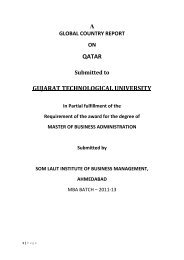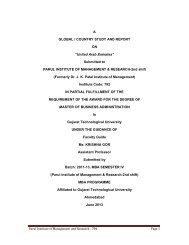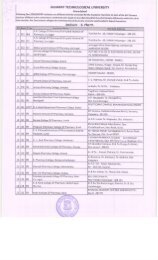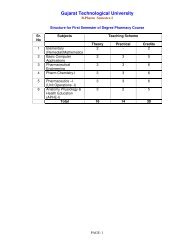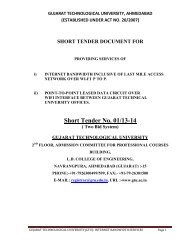751-Sabar Institute Of Management, Tajpur - Gujarat Technological ...
751-Sabar Institute Of Management, Tajpur - Gujarat Technological ...
751-Sabar Institute Of Management, Tajpur - Gujarat Technological ...
You also want an ePaper? Increase the reach of your titles
YUMPU automatically turns print PDFs into web optimized ePapers that Google loves.
2.2 Economic Factors<br />
5th largest economy in the world in PPP terms and Europe's largest economy<br />
Leading exporter of machinery, vehicles, chemicals, and household equipment making<br />
Germany a highly competitive country<br />
Innovation driven economy (WEF, 2012)<br />
Macro economy still remains remarkably stable in the view of continued economic difficulties<br />
in the Euro area<br />
Reduction in the fiscal deficit (fulfills Maastricht criteria)<br />
Germany benefited from low interest rates during sovereign debt crisis<br />
Financing for companies very cheap due to low interest rates<br />
Decreasing inflation rate to currently 2.0% (October 2012) (2.0% is the maximum level set by<br />
ECB to ensure price stability)<br />
GDP growth of 0.3% in Q2 2012 keeping the overall Euro area out of recession<br />
Depreciation of Euro against major currencies facilitates exports<br />
GDP per capita of 31.415,97 € (2011) indicating high purchasing power of consumers<br />
Prudent economic policies especially regarding lowering of corporate tax rates<br />
Spillover effects of European Sovereign Debt crisis weighing down on Germany’s economy<br />
Rating agencies threaten to downgrade Germany (negative outlook according to Moody’s)<br />
Low GDP growth compared to other developed countries outside Euro area<br />
Germany GDP Growth Rate<br />
The Gross Domestic Product (GDP) growth rate provides an aggregated measure of changes in<br />
value of the goods and services produced by an economy. Germany is the largest economy in<br />
Europe. The German economy is heavily export-oriented. In fact, exports account for more than<br />
one-third of national output. As a result, exports traditionally have been a key element in German<br />
macroeconomic expansion, accounting for over half of the economic growth in recent years.<br />
Germany is a strong advocate of closer European economic integration, and its economic and<br />
commercial policies are increasingly determined within the European Union (EU).<br />
14


